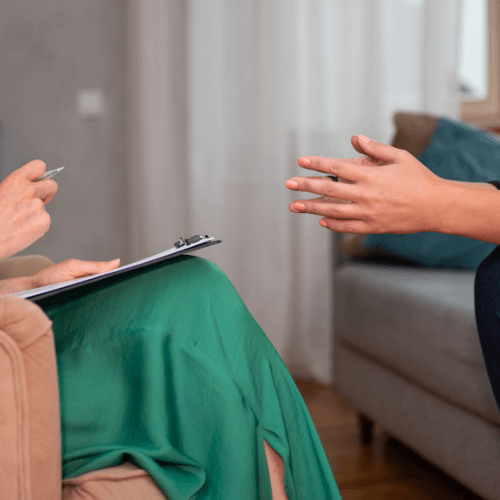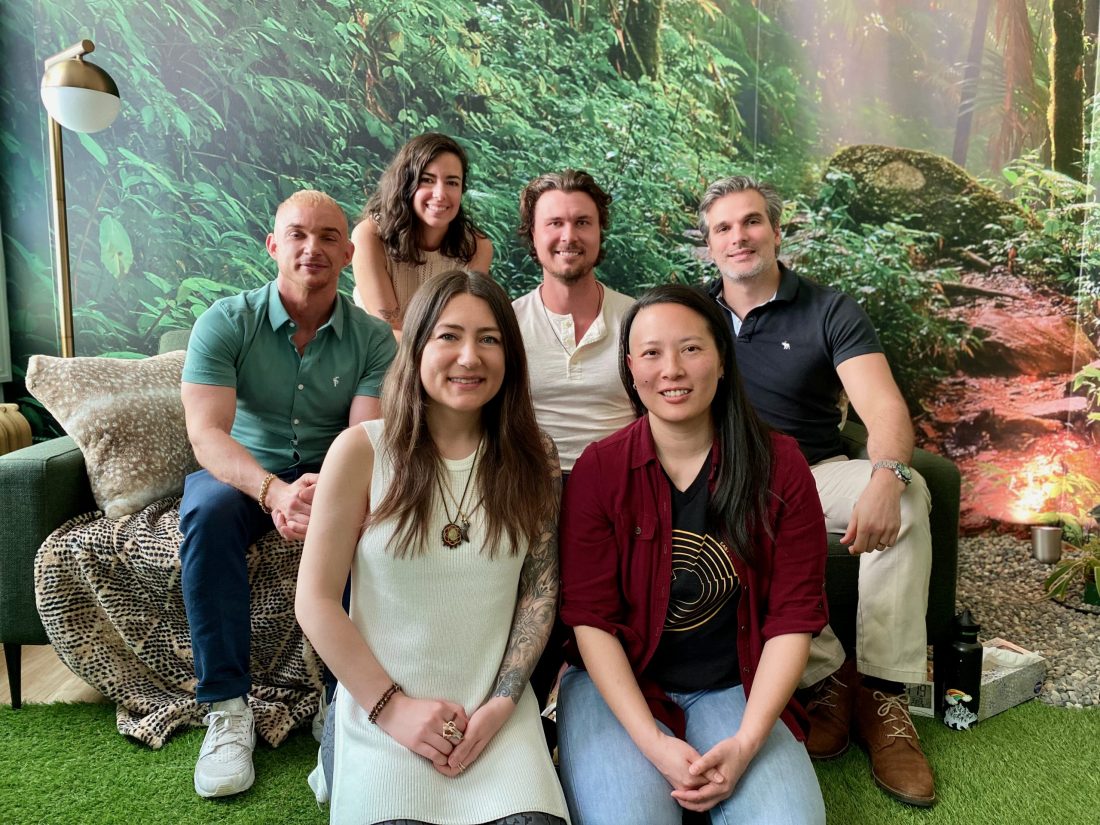Individual Counselling
Find support and begin to heal

To live is the rarest thing in the world. Most people exist, that is all.
— Oscar Wilde
What is Individual Counselling?
Individual Counselling is a type of therapy where a client works one-on-one with a professional counsellor or therapist to address personal challenges, mental health issues, or emotional struggles. The focus of individual counselling is on the individual’s thoughts, feelings, and behaviours, with the aim of helping them develop insights, coping strategies, and skills to improve their well-being.
At Thrive Downtown Counselling Centre, we provide one on one counselling to help you transform a critically hostile relationship with yourself into one that is peaceful and patient—reducing depressed and anxious systems while restoring motivation, safety and spontaneity in life through individual counselling.
You will interact with your individual counsellor in a warm and kind yet very intentional environment designed to improve your well-being and life quality in the individual counselling session.
Who can benefit from Individual Counselling?
While our aim is to understand and appreciate you as a complete person, here are common issues people seek us out to receive help with:
Low self-esteem or self-value
Depression
Anxiety
Chronic stress
Relationship issues
Developmental or early-life trauma
Grief, loss and life transitions
Posttraumatic stress disorder (PTSD)
Inner critic
Self-destructive patterns of behaviour
Anger and irritability
Saying no and setting boundaries
Cultivating assertiveness and learning to ‘use your voice'

These listed issues are not your identity or who you are. They do not mean you are broken or that there is something with you.
Quite the opposite, in fact.
So, congratulations on learning to slow down and listen.
Individual Counselling Benefits
While counselling has many options such as couples counselling, family therapy and groups, individual therapy remains the core service folks access to help transform their lives.
Seeing an individual therapist in one on one counselling session helps to build a safe, confidential and trusted relationship that deepens over time. As this relationship grows closer, folks will often undo aloneness, increase mood resilience, improve outside relationships, gain career clarity, resolve identity challenges and move more into a peaceful and purposeful life.
Personalized Attention and Care
Development of Coping Skills
Enhanced Emotional Regulation
Trauma Processing and Healing
Deeper Processing of Emotions and Experiences
Safe and Confidential Environment
Enhanced Communication Skills
Personal Empowerment
Building Resilience
Reduction in Unhealthy Behavior Patterns
Improved Self-Awareness and Insight
Boost in Self-Esteem and Confidence
Encouragement of Self-Exploration
Cultivating a Growth Mindset
Targeted Therapy for Specific Disorders
How Individual Counselling works?
Individual counselling often starts with a short phonecall with your therapist to make sure it feels like a good fit. If you decide to move forward, you’ll meet with them on the first day—either in our office or via the web.
The first session is spent getting to know each other, building comfort, educating on the brain and body and establishing what sort of change you’d like to see in life. From that point, the work only deepens and becomes more powerful over time.


What to expect from Individual Counselling?
It’s important to go into therapy recognizing that it is a process. This means that counselling is less like taking a pill and curing something and more about getting to know yourself deeper so that suffering lessens and your ease through life increases. Over time, you get mastery and life starts to flow. You know who you are and have the confidence to design life so that it matches your values.
Your therapist is there to help you to build comfort with your emotions, patience with yourself, boldness in taking action and setting boundaries while releasing pain from the body. This is something that happens over time, not all at once. Finally, we aren’t here to just give answers. The person centered approach in counselling means the work honours how you see the world so that you become your best self.
Your healing journey starts with a single step
Related to the last point, counselling is about embracing a lifestyle of wellbeing. It’s a journey. The sometimes scary step of finding a therapist may be one of the most important things you ever do. When you take this step, you are choosing to look at what was too big and frightening in the past. As you show up for your first day of in person counselling or web work, you are making the decision to accept help and let go of what has held you back—an act of tremendous courage and compassion

Counsellors
Get to know our counselors and find one that resonates with you

Free Consult
Want to make sure that we’re a good match? Have a free chat with one of our counsellors:

Book Online
Use our confidential booking system to find a time that suits your schedule:
Where are Individual Therapy sessions held?
In-person, in large rooms that allow safer physical distance. In-person sessions are guided by our policy, informed by WorkSafe BC and the BC Association of Clinical Counsellors.
Or if you prefer, over the video-platform Zoom, which is compliant with Canada’s standards for professional and personal privacy. Just click the invitation link your counsellor will send prior to your appointment.
Rates
$165 + GST
Counsellor
$65 + GST
Why choose Thrive Counselling Centre?
There are many excellent counselling centres around Vancouver (and several we can gladly suggest). Like all spaces though, Thrive has its own unique mission:
Our centre is based on helping our clients and counsellors to become who they are more fully. Our stance is that in safe and encouraging conditions, people naturally become who they were meant to be. We observe that this gets slowed down or outright stopped when traumatic events or periods get ‘stuck in the body.’
Our team is here to help remove blockages to your nervous system so you can confidently say I know who I am and I know what I want. We do this with modern, research-supported therapies designed to resolve trauma. These include EMDR, Emotion Focused Therapy, Internal Family Systems, AEDP and many more.
We believe that healed nervous systems are naturally kind, patient, tolerant and curious to others. We don’t guide what your values should be, instead wanting to help you discover what your own values are from the deepest corners of who you are as a person. This is often a very different message from what our families taught us!

Individual Counselling Services FAQs:
What are the types of individual counselling?
Individual counselling refers to the overall practice of seeing a therapist in one on one counselling session. From here, you may work with a variety of different approaches to counselling. These are listed on the bio pages of each therapist and include types of counselling our team has been trained in. Examples include EMDR, Internal Family Systems, Cognitive Behavioral Therapy and Mindfulness Based Stress Reduction.
What are the strengths and weaknesses of individual counselling?
In one-on-one work, safety may be built very quickly compared to groups and workshops. You have someone in your corner keeping you accountable to your growth who knows you more deeply with each passing week.
Relationship issues however—such as marital or couples challenges—are harder to work with. These difficulties tend to resolve better through couples and relationship therapy.
How can counselling empower an individual?
Feeling confident in our identities, trusting our emotions and allowing strong and safe relationships is called secure attachment. This is built by having a consistent relationship in which we are seen, heard and understood. Repeating this over time ‘programs security’ into the nervous system. After accessing counselling, folks tend to honour their needs, set more confident boundaries and leave negative relationships in favour of safer and more positive ones.
What is the difference between individual and group counselling?
Individual counselling means seeing a therapist one-on-one, whereas group counselling occurs typically with at least five other participants present (and often many more). Both may be done in person Vancouver or via the web. A range of both services exist, such as relationship or individual career counselling with the same options generally being available in population focused group work as well.
What can I expect from Individual Counselling Vancouver?
Expect to be entering a process where things steadily move towards what you want and need in life. I write ‘process’ because counselling isn’t like taking a drug that cures things. It is a journey of knowing yourself deeper, practicing insights in the real world, and then repeating the cycle again and again as life becomes safer, more meaningful and enjoyable. Both counselling in person or web-based work help to achieve this.
What are some signs that indicate counselling therapy might be a helpful intervention for an individual?
When thinking is constant and disorganized, when relationships are stressful, when work is unsatisfying, when the body is ‘protesting’ through illness or injury, or when the general flow of life is a struggle, counselling may be helpful.
Who are the individuals who need counselling?
The word ‘need’ is tricky. While indeed, oftentimes folks may be experiencing high levels of anxiety, depression or traumatic distress, anyone looking to enhance some aspect of their lives may benefit from counselling.